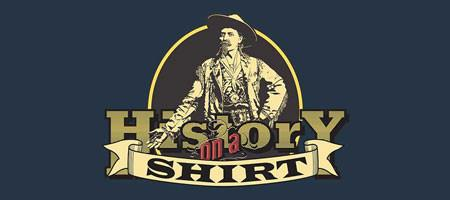Eddie and the Ivy Leaguers
One hundred years ago in October, the Red Baron was already legendary. Other pilots - Boelcke, Guynemer, Ball, Immel mann - were also legends, and already dead. The Lafayette Escadrille was legendary. Some were dead, and some were getting ready to pass on their experience to arriving Americans, as the last round of WWI aviation legends began to assemble "over there."
mann - were also legends, and already dead. The Lafayette Escadrille was legendary. Some were dead, and some were getting ready to pass on their experience to arriving Americans, as the last round of WWI aviation legends began to assemble "over there."
Eddie Rickenbacker (still spelled "Rickenbacher" since he had not yet, as the newspapers later put it, taken the Hun out of his name) had recently had his first solo. He didn't wreck the plane on his first solo landing as Richthofen had done on his. Rather, he was afraid of coming down too fast and "landed" the airplane fifty feet up instead. At least it was a less expensive mistake which allowed for a second chance. Now Rickenbacker was an engineering officer at Issoudun (where Victor Parks, great-uncle of VAFM director Andy Parks, was an instructor pilot), organizing the mechanical end of the school.
German Ancestry, Not German Sympathies
After the captain at the school "who was a better banker than a soldier," forgot to salute General Pershing, he was replaced by a man who would become another USAF legend, Carl "Tooey" Spaatz. With officers by the names of Spaatz, Rickenbacher, Wiedenbach, Tittle, and Spiegel running the school, a new American pilot could wonder if he'd somehow arrived at the German air force. The officers got called "the five German spies" behind their backs.
Many of the new pilots were arriving from the Ivy League, and then maybe even more than now that meant wealth and America's closest thing to noble family. Many were in for a shock; as Rickenbacker put it,
Faultlessly attired in shiny Sam Browne belts, handmade boots and tailor-made uniforms, they came in expecting to find a flying school in full operation. Instead they found a mudhole and a tough Swiss-German engineer with a grammar-school education and the grubbiest of chores for them to perform. They made sarcastic comments both behind my back and to my face, and I admit that I had some desire to get even.
Relative Importance of Propellers and Ivy Leaguers
So Ivy Leaguers pioneered the early version of an Air Force tradition, still practiced (though not exactly celebrated) in aircraft maintenance units. "FOD walk" at the beginning of a shift involves the whole unit spreading out side-by-side and walking from one side of the flightline to the other, picking up anything that could possibly cause foreign object damage (FOD) to an airplane - nuts, bolts, wire, rocks, or anything else that might have been dropped or blown onto the flightline. Any of these items in an engine could put it out of commission. But it's not that hard keeping a concrete pad clean - at least compared to a field.
The muddy field was strewn with rocks, which would fly up and break the wooden propellers. I was running out of props. One day I requisitioned a hundred buckets, put them in the hands of a hundred Ivy Leaguers and sent them out in the mud to pick up rocks. The groaning and moaning that day were music to my ears. But, though there was some antagonism between us, I must say that they were a fine bunch of kids, and many of them became excellent flyers.
Writing Home to Mom
Since Rickenbacker was not officially one of the flyers himself, he practiced by grabbing a plane where he could get one unofficially, and hung around listening to the instructors as he got the chance. This practice was not generally advised for longevity. "Supervised instruction was dangerous enough; we had a graveyard right there on the field for those who did not apply what they learned in class."
To his mother, however, Rickenbacker wrote that flying was safer than racing cars, because there was plenty of room in the sky. Fortunately, aviation was probably too new for his mother to have heard the quote, "Aviation in itself is not inherently dangerous. But to an even greater degree than the sea, it is terribly unforgiving of any carelessness, incapacity, or neglect."
You can read more about Rickenbacker's relationship to Ivy Leaguers in his autobiography, though he was not yet Fighting the Flying Circus.
